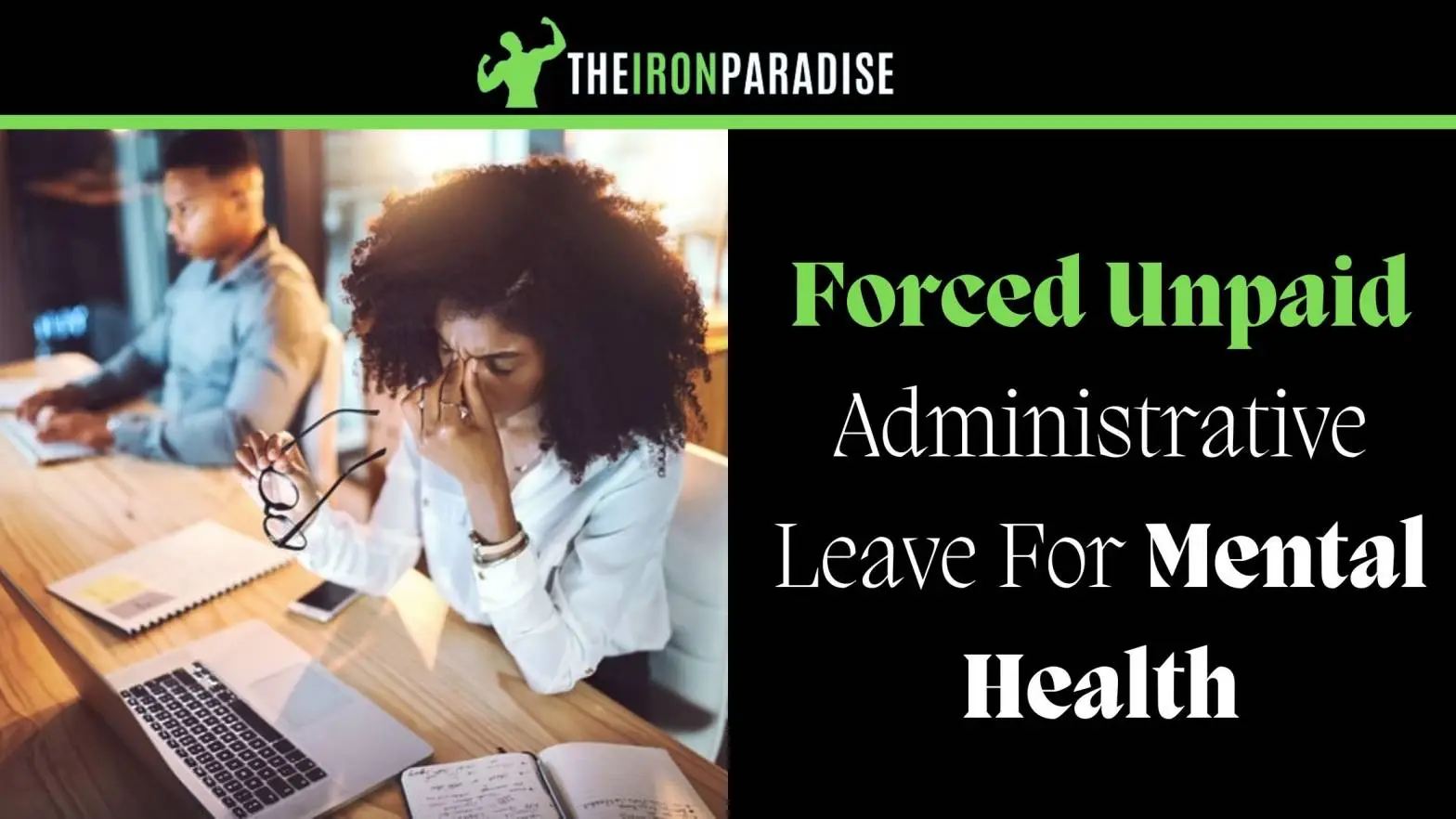
Forced Unpaid Administrative Leave For Mental Health. The workforce's obvious signs of exhaustion, stress, and overload are indicative of the present mental health epidemic. Since 2022, requests for leaves of absence due to mental health issues have increased by 65% in the US, outpacing those for extended COVID and non-COVID physical health disorders. Taking a mental health leave of absence from work may be excruciating for a variety of reasons, including the fact that stigma around mental illness has decreased but is still very much present.
Forced Unpaid Administrative Leave For Mental Health

A leave of absence for mental health refers to a time off work that you take to look after your mental health or support a family member who is experiencing mental illness. Depending on how serious the mental health problem is, a mental health leave of absence may be either short- or long-term. Since leave requirements might vary depending on individual circumstances, company policy, and local legislation, make sure to speak with your HR department, mental health specialists, and legal consultants before taking a leave of absence for mental health.
Read Also: What Are The 6 Components Of Good Mental Health?
Should I take a leave of absence for mental health?
For certain persons, a medical leave for mental health may be the best course of action. Some people discover that they may manage their mental health requirements without taking time off if they make changes to their work environment and get mental health help. If you’re thinking about taking a leave of absence for mental health you may wish to investigate these options:
Speak with your manager.
Talk to your boss if you're feeling overburdened, overworked, or overstressed. Talk about your problems and come up with some possible remedies to reduce stress.
Modify your schedule or task.
Discuss with your management the possibility of temporary job modifications, telecommuting, flexible scheduling, or a less workload.
Use the mental health services provided by your employer.
Certain companies give complete mental health benefits like Lyra Health, which offers resources and support, or employee help programs. Psychiatric drugs and/or treatment may help many individuals manage forced unpaid administrative leave for mental health.
You May Also Like: Is Anxiety Neurodivergent? Understanding the Signs of Neurodivergence
How to discuss taking a leave of absence for mental health with your employer?
If you're thinking about taking a mental health leave of absence, you may be concerned about your job stability or being scrutinized because of your mental health issue. Before you discuss a medical leave for mental health with your employer, educate yourself and make plans to assist soothe your mind:
Recognize your rights
Employers cannot take adverse action against you for obtaining a mental health leave of absence or seeking treatment for mental health issues. Your employment need to be safeguarded.
Record your requirements.
Bring letters from your physician just in case. When the time comes to ask for a mental health leave of absence, working with your provider to describe the mental health issues you've been experiencing and how they're affecting your functioning can assist you and HR understand what you need.
Advice about going back to work after taking a leave of absence for mental health

It's normal to have anxiety before to going back to work after a mental health medical leave. There might be a lot of confusion in you. "What have I missed?" "What's altered?" "How will others respond to me?" By going over stress-reduction strategies, discussing limits and what they feel comfortable expressing, and creating a return plan with their boss or team, I've assisted clients in addressing those emotions.
1. Return to work with ease
Gradually return to work. This might include choices for telework, a phased schedule, or a midweek start to lessen the pressure of a full-time return. For instance, you may return a few days a week and gradually increase your hours back up to your usual schedule. In any case, it's beneficial to go through these choices with HR when you return to work.
2. Ask for a flexible schedule
Agree on flexible start and finish hours. Schedule your work for when you're most productive. For instance, you may divide up your workday into manageable portions or begin late in the morning and finish later.
3. Have honest conversations
It's important to discuss any difficulties you may have upon returning to your position with your boss and the HR staff, such as circumstances that exacerbate anxiety or depressive symptoms, and to collaborate with them to identify helpful solutions.
Read Also: Should I See a Psychologist or Psychiatrist for Anxiety?
FAQs: Forced Unpaid Administrative Leave For Mental Health
Do you need time off work for mental health?

Spending time to improve your forced unpaid administrative leave for mental health is equally as acceptable as time off for physical wellness. You need time to heal if you're too sick to work. You may take some time off from work, but that doesn't imply you won't return. When you're prepared to go back, your employer need to assist you.
Can I leave work early for mental health?
Mental wellness: A fixed number of days are allotted by certain workplaces for mental health. Check your business policy, and if it offers benefits, take use of them when you're anxious or burned out. If your employer doesn't offer these days, you might merely claim to be ill or come up with another justification.
How do I tell work I can t come in because of my mental health?
For instance: "I've been struggling lately with my mental health." If I were to come into the workplace today, I could not deliver anything approaching my typical level of work. In order to give it my all when I return tomorrow, I would want to take today off. Thank you for your understanding.
What to do if your mental health is too bad to work?
Ask to talk with their disability employment advisor if you are still experiencing mental health problems. Your mental health worker may also provide you with information about the resources available to assist those who are struggling to return to the workforce.



